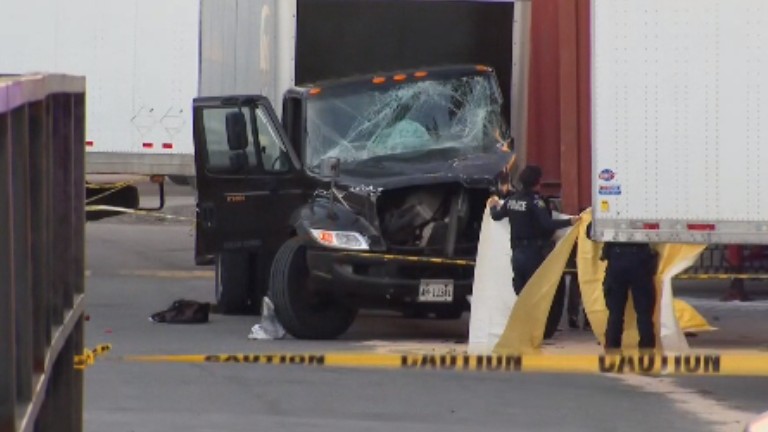Ottawa launches online public consultation on plastic, marine waste
Posted April 22, 2018 12:26 pm.
Last Updated April 22, 2018 4:20 pm.
This article is more than 5 years old.
The federal environment minister says she’d like to see Canada move toward zero plastic waste _ and she wants to hear what Canadians think.
Speaking from the seaside community of Eastern Passage, N.S., Catherine McKenna announced Sunday that the federal government has launched a public online consultation to help pinpoint ways for the country to eliminate plastic waste and reduce marine litter.
“We want to hear from Canadians about how we tackle pollution and waste,” she said, flanked by Nova Scotia Environment Minister Iain Rankin and Nova Scotian MPs Darrell Samson and Andy Fillmore.
“It’s not just cleaning up after the fact: it’s actually being thoughtful about how we reduce, how we recycle, how we compost.”
The announcement was made shortly before dozens of volunteers flocked to McNabs Island in the Halifax Harbour and McCormacks Beach in Eastern Passage to pick up litter as part of an Earth Day shoreline cleanup event.
According to the federal government, more than 150 million tonnes of plastic waste is clogging the oceans worldwide. It’s estimated that plastic could outweigh fish by 2050.
McKenna said much of the waste ending up in the country’s waterways is from single-use plastics, such as shopping bags and disposable drink bottles.
“I hear from Canadians every single day saying they want to figure out how we can reduce marine litter, how we can reduce single-use products, how we can take a more life-cycle approach,” she said.
“That’s why I get up every day and I’m so motivated. I look at my three kids, and I think about what kind of future I want for them,” she said.
Monique Breau showed up Sunday morning with her 5-year-old son Jonas to help clean up litter at McCormacks Beach.
She said it’s never too early to teach children about the importance of protecting the environment.
“I want him to be able to eat fish when he’s an adult,” said Breau. “I want him to be able to play on a beach and not worry about plastic waste everywhere.”
Jonas, who was armed with a trash grabber nearly as tall as he was, seemed to already have a good idea about how plastic recycling works.
“We throw it in the plastic bin and we make it (into) new stuff,” he said.
The event was organized by Nova Scotia-based environmental charity Ecology Action Centre, in partnership with Friends of McNabs Island, Oceans North, and Ocean Conservancy.
Heather Grant, the centre’s marine communications coordinator, said the event presented an opportunity for Nova Scotians to learn what they can be doing better to protect the environment.
“As a coastal province, Nova Scotia obviously has a huge stake in the health of the marine environment,” said Grant. “So having people come to clean up the beaches is a great way to get local people engaged and invested in the health of the oceans that the province depends on.”
Louie Porta, vice-president of operations and projects for Oceans North, said garbage in the ocean can literally work its way up the food chain as bigger marine animals eat smaller ones that may have eaten plastic.
It can also contaminate the water and create health risks for people.
“The environment doesn’t know how to process plastic and waste. All of the waste going into the ocean isn’t coming back out,” said Porta. “We need to stem the tide of the waste going into the ocean.”
As of Sunday afternoon, Porta estimated roughly 60 garbage bags were removed from the beaches.
He said all sorts of items were found, including some that couldn’t even fit in the garbage bags: “A table, tires, twisted steel ropes, and all sorts of things in between.”
Porta hopes McKenna’s announcement will give Canadians a chance to provide their solutions about what kind of leadership they want to see when it comes to marine plastics.
Canadians can take part in the online consultation through the government of Canada’s website.










